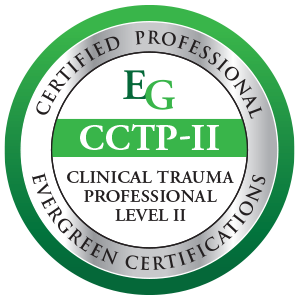
EMDR Therapy in Austin, TX
Neuro Nuance Therapy and EMDR, PLLC is an EMDR-Primary Psychotherapy Practice Providing In-Person Therapy in Austin, TX
Heal your past, Reclaim your present, Build your future
Healing Begins Here: EMDR Therapy in Austin, TX
Welcome to Neuro Nuance Therapy and EMDR, PLLC. If you’ve been considering beginning therapy or looking for an EMDR therapist in Austin, let me commend you on taking this first step. Many people search for healing after surviving through trauma, only to feel like they’re stuck in quicksand, reaching for a new future, but still feeling held back by the past.
Trauma leaves lasting effects, but they don’t have to last forever.
You might feel like you’re caught in a loop: you make progress, feel more grounded, and then something triggers that familiar storm: panic, numbness, anxiety, or emotional overwhelm. Coping skills help, but sometimes they aren’t enough. Healing deepens when we go beyond managing symptoms and start reprocessing what caused them.
What if you could heal your wounds instead of just cope with them?
That’s what Eye Movement Desensitization and Reprocessing (EMDR) therapy is designed to do, by activating your brain’s natural capacity to heal. If you’re looking for a trauma therapist or exploring EMDR, you’re in the right place. I specialize in helping adults in Austin find lasting relief from the impacts of trauma.
Begin building your recovery toolkit.
By understanding trauma and learning the skills that support healing, you’ll become better equipped to navigate life with confidence. As your resilience and capacity grows, EMDR can help you reprocess your past and envision your future with greater clarity and self-trust.
You already hold the capacity for healing, let’s unlock it together.
As your therapist, I’ll walk beside you as you build insight, resilience, and emotional freedom. My role is to support you in reconnecting with your own wisdom and strength. Through our work together, you can heal your past, reclaim your present, and build a future where you feel grounded and empowered. I’d be honored to help you get there!
Alex Penrod, MS, LPC, LCDC
Founder & EMDR Therapist
Welcome, allow me to introduce myself. I’m a Licensed Professional Counselor (LPC), Licensed Chemical Dependency Counselor (LCDC), and a person in long-term recovery with 10 years of experience working in the behavioral health treatment field.
As a trauma specialist, my specialty is Eye Movement Desensitization and Reprocessing Therapy (EMDR) supported by Internal Family Systems Therapy (IFS) and Ego State Therapy. My approach is based on connecting with you as a person, not as a diagnosis, and helping you to reprocess key experiences that would have affected anyone in your shoes.
My areas of focus are on recovery from PTSD, complex trauma, dissociative disorders, depression, anxiety, and substance use disorders.
In-Person Therapy: I provide in-person EMDR therapy in North and Southwest Austin.
Telehealth: Convenient virtual EMDR sessions help adults throughout Texas heal from home.
I welcome new clients from all walks of life. To learn more about how I can help you find lasting healing, schedule your free 15-minute consultation with me. I’d love to learn more about your goals and answer any questions you may have.

Training and Certification
-
Yes. Virtual EMDR sessions are available for adults across Texas. You can learn more about how telehealth EMDR works and whether it’s a good fit on our Virtual EMDR Therapy in Texas page.
-
Yes, I have offices for in-person sessions in North Austin near Mopac and 183 and in Southwest Austin on Bee Caves Road. In-person services are by appointment only.
-
I have several ways you can use your insurance.
I'm in network with Aetna and offer a convenient hassle free way to handle your claims through a company called Headway.
For all other insurance carriers, if you've met your deductible for the year you could get automatic reimbursement and only pay for a portion of your sessions by using a company called Thrizer to process out of network claims. If you haven't met your deductible, we can submit superbills to Thrizer to apply toward meeting it.
I can assist you with your options in a free 15-minute consultation or visit my services page for links to explore these options for yourself.
-
I charge $150 for 60-minute sessions and $225 for 90-minutes sessions.
-
See my frequently asked questions page, my page on how to choose an EMDR therapist in Austin, or schedule a free 15-minute consultation with me. I'd be happy to help!
What is Trauma?
-
Trauma can be defined as an event, experience, or time period that causes severe stress exceeding a person's resources and ability to cope.
After traumatic experiences, some people recover naturally while others develop symptoms of Post-Traumatic Stress Disorder (PTSD).
Traumatic Experiences Involve a Wide Range of Issues
Trauma can involve a wide range of life experiences and secondary effects, I'm here to support you in healing from:
Single event trauma (e.g., surviving through a natural disaster, car accident, or severely distressing event)
Developmental trauma (e.g., childhood trauma and childhood abuse)
Complex trauma (e.g., prolonged or repeated periods of severe stress where escape was difficult or impossible)
Sexual abuse and sexual assault
Substance abuse and co-occurring mental health disorders
Anxiety disorders, panic disorders, and social anxiety
Dissociative disorders
Difficulties with life transitions, grief, low-self-esteem, and relationship issues
If you’re feeling overwhelmed by your emotional response to past traumas, struggling with physical health symptoms tied to stress, or coping with PTSD symptoms, as a trauma therapist I'm here to help.
Using EMDR as the primary treatment strategy, Neuro Nuance Therapy and EMDR offers tailored approaches:
PTSD Treatment for single and multi-event trauma typically experienced as an adult.
Trauma Therapy for a wide range of difficult and emotionally impactful conditions including traumatic grief and loss.
Complex Trauma Therapy (C-PTSD Treatment) for childhood, developmental, attachment-based, and prolonged trauma.

Living with the Impacts of Trauma Can be Debilitating

Symptoms of Post-Traumatic Stress Disorder

There is Light at the End of the Tunnel

What is EMDR?
Strategies and Goals for Healing
The first priority in my treatment approach is to create a safe environment and work to build a trusting relationship with you. As this develops we’ll create a custom treatment plan based on your specific needs, strengths, and goals. No two healing journeys are the same and trauma recovery shouldn’t be a cookie cutter experience.
Whether you’re working toward personal growth, building self-esteem, or just trying to gain stability in daily life, I’ll meet you where you are and focus on what’s most important to you regarding your progress. By taking a holistic approach, I can tailor therapy to your individual needs. In general, effective treatment for trauma aims to produce the following benefits:

Benefits of EMDR
3 Step Plan
-

Book Your Free 15-Minute Consultation
Follow the link below to use my calendar and choose a time that’s right for you.
-

Together we assess your needs and determine a plan of action
A consultation allows you to explore if therapy with me is right for you with no commitment or obligation.
-

Begin healing your past, reclaiming your present, and building your future
After consultation, beginning therapy is as easy as scheduling your first session.

Public Statements on EMDR
Do I Really Need Therapy? Can I do this on My Own?
-
People can and do recovery naturally or through their own efforts, but when PTSD and the effects of trauma are chronic many people continue to struggle with:
Ongoing PTSD Symptoms
Compensation Strategies and Compulsions
(over-working, perfectionism, needing constant distraction from internal world)
Repetition Compulsion
(unconsciously recreating scenarios where similar traumas occur again)
Self-Medicating with Substance Use
Gaining Traction for Periods of Time and Being Triggered Again
Trying to Outrun Trauma can be Exhausting

You Deserve Healing
Background on Your Guide
I never fit in as a kid. In the words of Waylon Jennings, “I’ve always been different with one foot over the line, winding up somewhere one step ahead or behind.” I had a tumultuous adolescence and early adulthood characterized by some heavy blows in life that left me feeling hopeless by my mid-twenties.
After seeking my own treatment and therapy to move through my struggles, I found I was most engaged by life when I was helping others with similar challenges. It was my way of putting my experience to good use.
My pursuit toward building on this discovery led me to a 10-year career in the behavioral health treatment field, moving from primary counselor to executive director of two programs. My passion for neuro-informed therapy was born while managing an assessment program with a neuropsychologist trained in EMDR and neurofeedback therapy.
During those years, I earned my Master of Science in Addiction Counseling from Texas Tech University Health Sciences Center and completed my training for Eye Movement Desensitization and Reprocessing (EMDR) therapy through the EMDR Institute.
My supervisor was an incredibly talented therapist who trained me in adapting EMDR for use with complex trauma and dissociative disorders. I found my niche in trauma therapy and became passionate about the delicate process of helping people heal from their deepest wounds.
After several years of part time private practice during evenings and weekends I took the leap into full time private practice. Getting to connect with people and focus solely on therapy is my idea of a dream job.
Learn more about my “why” as a therapist.
“Trauma recovery and mountain climbing are not about speed. It’s about making small moves forward, sometimes doubling back to take another path, then one day you realize how far you’ve come.”
Take the First Step Toward Healing
-
You don't have to face your trauma alone. As a trauma specialist I'd be honored to support you. I know how difficult it can be to reach out, but sometimes it's those difficult decisions that bring the most positive change to your life.
Ready to Take the Next Step?
Click the button below to meet with me personally and find out if EMDR might be the right path for you.





